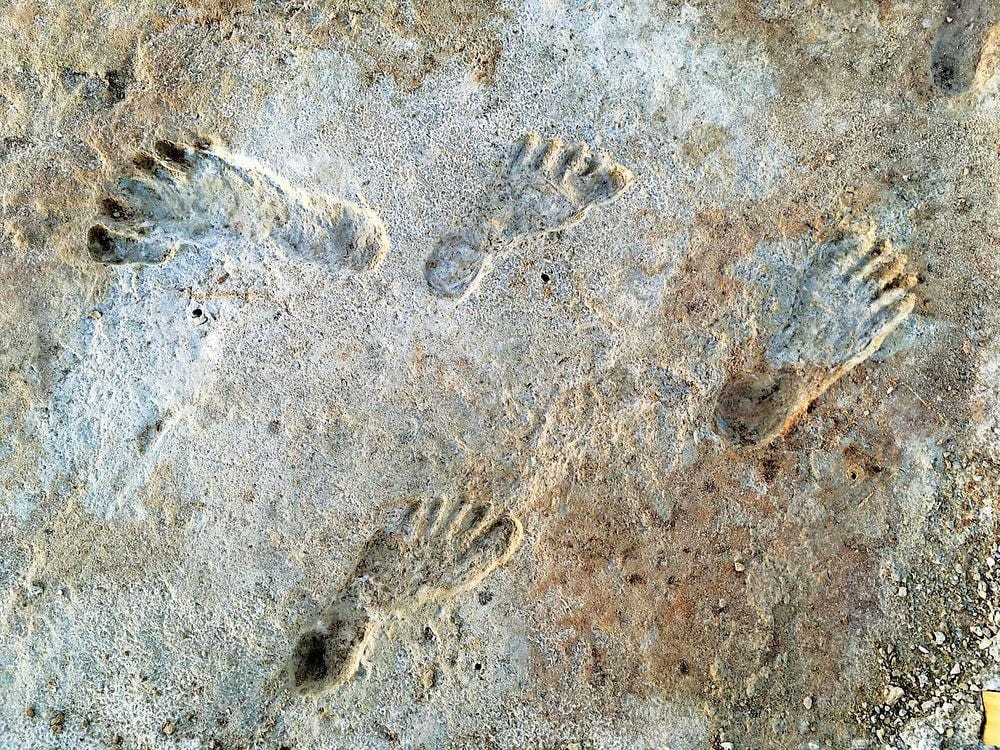Ancient “Footprints in the Sand” Discovery Suggest (Again) Modern Science Knows Very Little About Human History

New evidence attempts to rewrite the timeline of when humans first traversed North America. In the White Sands National Park of New Mexico, researchers have found fossilized footprints that are believed to be 23,000-21,000 years old. Previously it was thought humans were in this area no more than 13,000 years ago. Of course this news comes with a disclaimer. Science.com states “These ages remain controversial because of potential old carbon reservoir effects that could compromise their accuracy.”
Popular Mechanics this month reported the findings by academics from Bournemouth University. “The site in New Mexico has rewritten history books as we’ve discovered wonderful examples of human activity, the way that humans interacted with one another, with the landscape, and with the animal life there,” said Sally Reynolds, a principal academic in paleoecology.
The study initially utilized a dating method involving common ditch grass seeds to establish the timeline of the footprints. This method, though robust, faced potential challenges due to the impact of hard water on the seeds. Subsequent analysis using radiocarbon dating of fossilized pollen cells, confirmed by flow cytometry, validated the initial findings and eliminated concerns about hard water contamination.
In the pages of Science, revelations gleam,
Urging us to revisit and challenge, it seems,
For future discoveries, with their unforeseen might,
May once more shift our perspective's light.
Yet amidst the flux, steadfast and sure,
God's Word abides, a timeless lure,
A beacon guiding us, unwavering and clear,
To grasp the origins of humanity dear.
These revelations unearth a tale profound,
Of footprints in sands, ancient and sound,
They not only unveil a past unseen,
But beckon us deeper, where mysteries convene.
Sources:
Study confirms age of oldest fossil human footprints in the Americas | Bournemouth University

